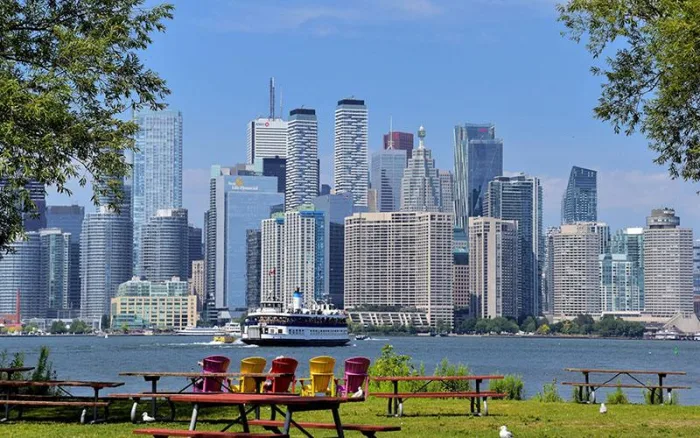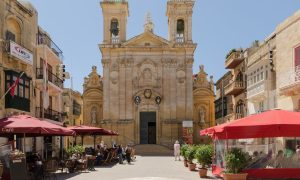In recent years, Malta has become a "European Niche" that more and more Chinese people are concerned about.immigrantsTreasure land". Located in the heart of the Mediterranean Sea, this small island nation boasts membership in the European Union and the Schengen Area, English as an official language, and a warm climate. In the discussion "Where to live is more cost-effective?Immigration to Maltafrequently on the list. So.Immigration to MaltaIs it worth it? In this article, we will analyze the cost of living, medical care, education, cultural integration and other key factors from the personal experience of Chinese people, to help you evaluate this choice more rationally.
I. Cost of living: lower than Western Europe, higher than Eastern Europe
In Europe, the cost of living in Malta is generally in theupper-middle levelThe number of families from China's first-tier cities has been increasing, but is still within the acceptable range for families from China's first-tier cities.
-
shelterRent for a one-bedroom apartment in popular city centers such as Valletta and Sliema is around €800-1,200/month; in the suburbs it can be as low as €600/month. The cost of purchasing a home ranges from 250,000-450,000 euros.
-
foodstuffs: Prices in supermarkets are slightly higher than at home, vegetables and meat are generally imported, and basic living expenses for a family of three are about 800-1,200 euros per month.
-
transportation: The public transportation ticket is only 26 euros/month, so it's no problem not to drive on the island.
-
Entertainment and daily: Monthly gym passes are about 40 euros, cinema tickets cost 8-10 euros, and the beaches, trails, and other natural resources are open for free.
💡 Chinese proposal: Rent online in advance or find an agent to learn about the market; it is more cost-effective to rent in an area that is not by the sea.
Second, the medical system: universal health insurance + private insurance double protection
MalteseUniversal coverage of the public health-care systemThe hospital provides free or low-cost medical services to local residents and legal long-term residents. The hospital is fully equipped and the doctors generally speak English, so communication is unobstructed.
-
Maturity of the family doctor system: Rapid access to basic treatment at the first visit.
-
Timely handling of emergencies: Ambulances respond quickly and emergency care is guaranteed.
-
Private healthcare options abound: Chinese can also purchase commercial medical insurance to enjoy shorter waiting times and personalized service.
✅ The Chinese Evaluation: Healthcare services are reliable, friendly and efficient, in line with the Commonwealth system, making it particularly suitable for those moving with children or accompanying their parents.
III. Educational resources: bilingual teaching + internationalization route
Malta's education system is British, with English language instruction from elementary school to university, and a large number of schools:
-
public school: Free enrolment, bilingual English + Maltese.
-
Private and International Schools: Mostly adopts the IB, British GCSE and other curriculum systems, suitable for families planning their children's international education.
-
higher education: The University of Malta is a recognized public institution in Europe and some of its courses are taught in cooperation with British and Italian universities.
💬 Chinese Parent Experience: Children adapt quickly to an English-speaking environment, the local school atmosphere is inclusive, and teachers are generally friendly to foreign students.
IV. Cultural integration: slow pace and high tolerance
The Maltese people are generally warm and open and very friendly to foreign immigrants. There is a high degree of cultural tolerance due to the large tourist and immigrant population:

-
General English, zero stress communicationThis is the "integration tool" most often mentioned by the Chinese.
-
No racial discrimination: Local residents have repeatedly helped Chinese people find housing, schools or solve life problems.
-
The Chinese community is mature: Some cities already have Chinese supermarkets, Chinese restaurants and WeChat groups to make life easier.
📌 Slower pace of life: This can be challenging for those seeking efficiency, but it's also why many choose this place - to "breathe life anew."

V. Advantages of Maltese status: one immigrant benefits the whole family
Malta's status as an EU country is highly permeable across Europe and is particularly suitable for families planning to create broader educational and career prospects for their next generation.
-
Freedom of movement through the 26-country Schengen Area
-
Residence/permanent residence/citizenship for the whole family
-
No global taxation and flexible asset planning
-
Stable, transparent and efficient immigration program
👨👩👧👦 Many Chinese have realized their vision of settling their families in the EU by obtaining Maltese residency through investment or technical means.
VI. Conclusion: Is Malta worth emigrating to?
If you aspire to the living environment of an English-speaking country, want your family to enjoy EU benefits and receive international education together, and don't want to face the high threshold and high cost of living of immigrants from big countries, thenMalta ImmigrationIt is indeed an option that deserves serious consideration. Real-life experiences of Chinese people show that Malta is not perfect, but it does have unique advantages in terms of education, healthcare, environment and cultural inclusiveness.
Of course, you have to be prepared for the initial problems of language adaptation, cultural differences, slow pace, etc. It takes time to accept and adjust. But overall, the evaluation of "cost-effective + good life" is not false.






